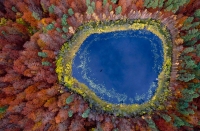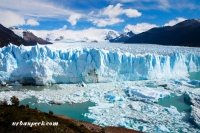David R. Grimes,physicist and cancer researcher at Oxford University. Thirty years has passed since events in Chernobyl, while Japan marks the fifth anniversary of the Fukushima disaster. We need more than ever to have a reasoned discussion on the issues. It is important also to see these disasters in the wider context of energy production: when the Banqiao hydroelectric dam failed in China in 1975 it led to at least 171000 deaths and displaced 11 million people. Our reliance on fossil fuels is particularly costly, not only to the environment but to human health; each year, at least 1.3 million people are estimated to die from air pollution. Shutdown of the plants in Japan has led to not only increased pollution, but rolling blackouts and protests. By contrast, France has for decades produced 75% of its energy through nuclear, and enjoys the cleanest air and among the lowest carbon emissions of any industrialised nature.
Patrick Moore, Ph.D. in Ecology, is a founding member of Greenpeace, who turned realist. "I love nature and people are part of nature - all people and all living things. I believe in one human family. All watersheds are connected. Environmentalism must be beyond nationalism, politics and ideology."
He explains how Greenpeace began in the 1970s and what it has become.
Roy W. Spencer is Principal Research Scientist in Climatology in the University of Alabama’s National Space Science & Technology Center. Approximately 200,000 people have died due to global terrorism in the last 10 years.During the same time, many millions of people (mostly women and children) have died due to policies promoted by Greenpeace and other “green” organizations (e.g. anti-DDT, anti-golden rice, anti-fossil fuel).
Patrick Moore - Canada
06.Nov.2015Patrick Moore: Co-Founder of Greenpeace, One of only a few original members of Greenpeace with an advanced science degree. He now is dedicated to promoting better energy and better agriculture to assist the poorer half of the world.
Subscribe to Newsletter
- Latest
- Popular








